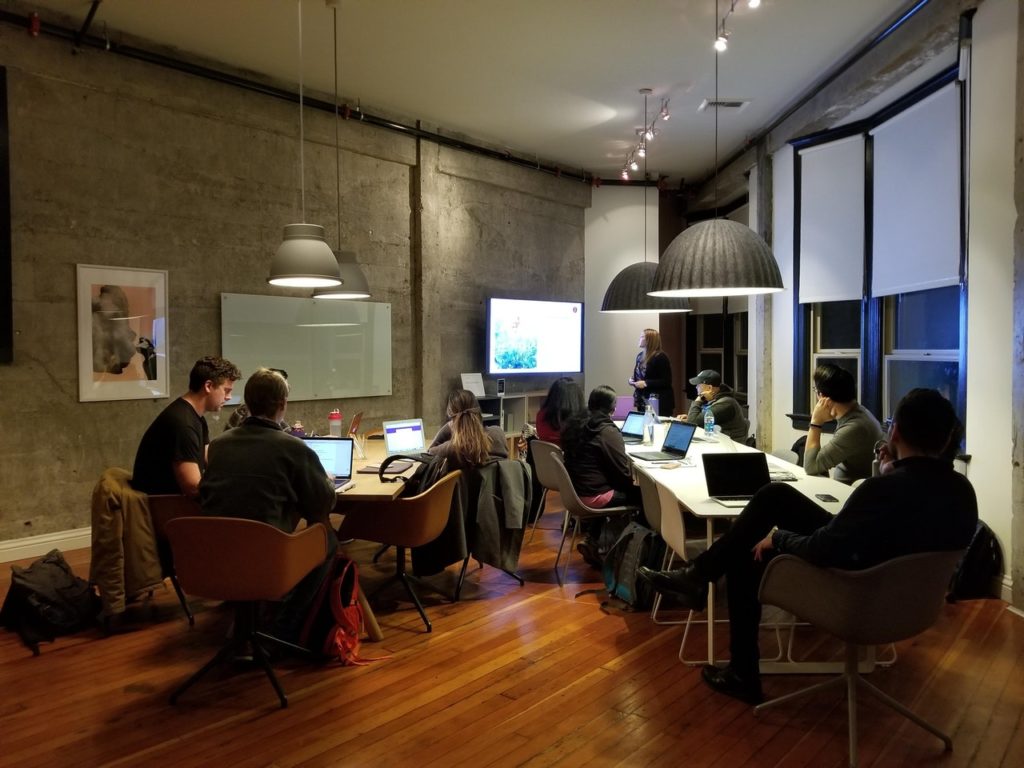A community college in New Brunswick is offering a course in horticulture tailored to equip students with the skills to work in a growing industry – cannabis cultivation. A school official said that the cannabis cultivation course would launch sometime next year and was designed in collaboration with industry leaders to train skilled workers in the highly regulated medical cannabis industry.
New Brunswick college offers a new cannabis cultivation course


Since the legalization of recreational cannabis use in Canada on Oct. 17, 2018, several colleges have offered a cannabis cultivation course to meet the growing need for labor in this sector.
Hemp.im is a mobile application that is exclusively dedicated to medical cannabis, hemp and cannabis news. The application provides you with the latest news from top cannabis sources.
College launched cannabis cultivation course before legalization
The New Brunswick Community College (NBCC) was one of the first schools to offer a cannabis cultivation course. The program was before legalization and is oriented towards the medical cannabis industry.
Sophie Maugeais worked in horticulture before teaching at NBCC. Since taking over from her predecessor, who set up the program, she is now in her third cohort.
Her objective is to train future technicians in the cannabis sector through the cannabis cultivation course and to ensure that they adapt to the reality of the market.
“I’m really trying to teach them how to get information. My goal is to teach them to learn,” said Maugeais.
The syllabus for NBCC’s cannabis cultivation course
During the 20-week cannabis cultivation course at NBCC, students are going to learn about plant nutrition, processing, climate, and integrated pest and disease management.
This control could be a major challenge given the limited number of pesticides previously allowed in cannabis cultivation. Maugeais estimated that there were about 20 of them which forced future producers to use insects to eat the parasites.


The program includes a visit to a cannabis factory, often beneficial to guide students in their future careers.
“Sometimes students find a passion for other departments of the industry such as mining or processing,” said the teacher.
Other post-secondary establishments have similar cannabis courses
In fact, neither New Brunswick Community College nor the City of Ottawa, which will offer a similar program in September 2020, will be able to handle cannabis off-campus.
NBCC prefers to simulate basil plans, given the similarities between the two plants.
In Ottawa, students will have the opportunity to explore the different varieties of cannabis, maintain the plants and protect them from pests. In addition, the program teaches production scheduling and quality control.
The New Brunswick Community College and La Cité College will offer courses on cannabis legislation. However, another institution also offers the opportunity to take this course in French. The University of Ottawa has a French program that applies specifically to cannabis legislation.
Enrollment for new cannabis cultivation course is ongoing
Enrolment, which is ongoing, shows that there is a real interest in cannabis cultivation courses among students.
However, for Frédéric Thibault-Chabot, Dean of Education at La Cité College, it is not necessarily the cannabis aspect that particularly interests students.
“These are people who are looking for a program that will show them the right skills and not the other way around. They’re not trying to say that’s what I want to learn in my program. No! They’re people who don’t know much about the field and want to improve their skills,” Maugeais says, describing her students.
“The course is not very demanding. This is not a university course, but it still takes a lot of study and students with a bit of seriousness. Most are passionate about the plant and others are interested in having a guaranteed job afterward.”
Canadian colleges are regrouping after cannabis legalization


In early November, a group of five Canadian colleges and institutions founded the Canadian College Consortium for Cannabis, whose mission is to oversee cannabis cultivation courses in college institutions.
Pierre Clavet, NBCC’s representative for the consortium, said that the association has focused mainly on three areas since its inception. First, it collected studies on the skills sought by employers in the cannabis industry. Then, Pierre Clavet became involved in applied research.
This gathering is composed of NorQuest, Niagara, Durham, and Okanagan Colleges. The NBCC is the only French-speaking member.
However, for Pierre Clavet, this does not mean that French-language colleges offering cannabis cultivation courses are isolated.
“Francophone colleges also make their voices heard through different types of partnerships,” he said, opening the door to the integration of new members into the Consortium.
__
(Featured image by nastya_gepp via Pixabay)
DISCLAIMER: This article was written by a third party contributor and does not reflect the opinion of Hemp.im, its management, staff or its associates. Please review our disclaimer for more information.
This article may include forward-looking statements. These forward-looking statements generally are identified by the words “believe,” “project,” “estimate,” “become,” “plan,” “will,” and similar expressions. These forward-looking statements involve known and unknown risks as well as uncertainties, including those discussed in the following cautionary statements and elsewhere in this article and on this site. Although the Company may believe that its expectations are based on reasonable assumptions, the actual results that the Company may achieve may differ materially from any forward-looking statements, which reflect the opinions of the management of the Company only as of the date hereof. Additionally, please make sure to read these important disclosures.
First published in acadie 35 nouvelle, a third-party contributor translated and adapted the article from the original. In case of discrepancy, the original will prevail. Although we made reasonable efforts to provide accurate translations, some parts may be incorrect. Hemp.im assumes no responsibility for errors, omissions or ambiguities in the translations provided on this website. Any person or entity relying on translated content does so at their own risk. Hemp.im is not responsible for losses caused by such reliance on the accuracy or reliability of translated information. If you wish to report an error or inaccuracy in the translation, we encourage you to contact us.



Comments are closed for this post.